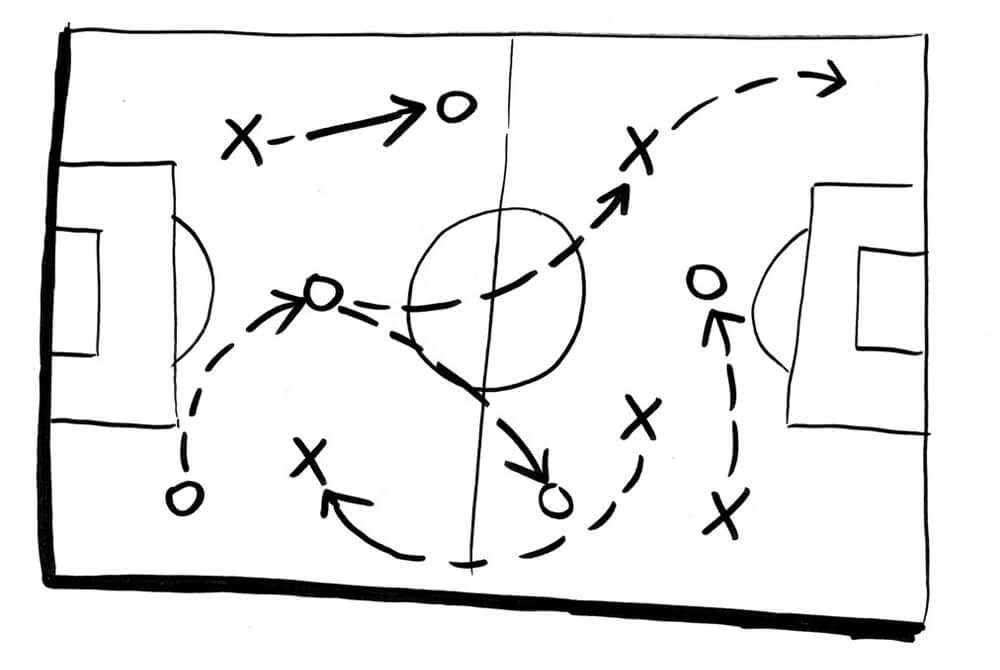
Are you employing an outdated playbook from the 1960s to drive giving initiatives in your church?
In 1987, Bob Knight could seemingly do no wrong. He had recently guided the Indiana University Basketball team to yet another national championship, marking his third victory. The Indiana University Basketball program was a coveted destination for aspiring athletes aiming to compete at the highest echelons of collegiate basketball. Fast forward just 13 years, and Knight was dismissed by the university due to his mistreatment of players.
For those familiar with the landscape of collegiate athletics, the prevailing coaching approach throughout much of the 20th century was characterized by toughness and severity. Coaches often raised their voices at players and occasionally even engaged in altercations. However, this paradigm shifted rapidly, and the lesson learned can offer guidance for church giving and fundraising endeavors.
The Shift in Church Giving — A Cultural Trend
As more accounts of player abuse and mistreatment emerged, coupled with athletes’ diminishing tolerance for such behavior, a cultural shift ensued. Programs akin to Knight’s at IU found it increasingly challenging to attract skilled players. Instead, the most promising recruits gravitated toward programs that treated them with respect.
Knight had employed a playbook rooted in a bygone era, and for a period, it yielded results, including three national championships. However, as the culture evolved, his playbook lost its efficacy. Knight was afforded chances to adapt at various institutions, yet his reliance on the outdated playbook prevented him from reclaiming the pinnacle of the sport.
A comparable shift in culture is transpiring within charitable giving, necessitating the formulation of a new playbook. Charitable contributions within the church realm are grappling with an epidemic in the United States. Based on a study co-authored by the Lilly Family School of Philanthropy at Indiana University, churches’ share of charitable donations plummeted from over 60% in 1990 to half that amount today.
Despite higher overall charitable giving figures, churches have faced a persistent giving recession since the early 1990s. Without intervention, this trend will persist, exerting financial pressure on churches and impeding their growth. A significant driver of this trend? Churches persisting with an antiquated playbook that is no longer effective.
Lessons from Oral Roberts
In 1947, Oral Roberts, a part-time preacher, stepped down from his pastoral role within the Pentecostal Holiness Church to establish the Oral Roberts Evangelistic Association. By the 1960s, this association burgeoned into a thriving multi-million dollar organization, leaving an indelible mark on the language churches still employ today when urging individuals to contribute.
Have you ever prompted someone to give by referencing passages such as Malachi 3:10: “Bring the whole tithe into the storehouse and see if I will not throw open the floodgates of heaven and pour out so much blessing that there will not be room enough to store it”? Or perhaps, “We give in response to God who gives good gifts”? If so, you are following a playbook as aged as Oral Roberts.
A historical overview of church history reveals that Roberts harnessed this passage with remarkable success to fund his ministry’s operations. Intriguingly, this passage wasn’t widely linked to direct teaching on giving to local ministries before Roberts’ time. He took a scriptural passage and crafted a new playbook from it. This approach proved highly effective for many years and persists in numerous church websites’ giving pages and sermon discussions on giving.
However, here’s the catch: this approach no longer yields results. In fact, it’s impeding your ministrys’s ability to engage with donors. Survey results show that contributors wish to understand how their donations directly help the church’s work. Present-day givers remain laser-focused on impact and outcomes. This is one reason why not-for-profit organizations (NPOs) are progressively garnering a larger share of charitable giving funds. They are adapting to donors’ preferences. Unfortunately, the church still employs language that was once potent but has since lost its effectiveness.
Encouraging Giving Among Congregants
Consider the words you employ to motivate supporters of your ministry’s endeavors. Are you adhering to the playbook pioneered by Oral Roberts? Or are you presenting an authentic rationale for why individuals should contemplate partnering with and endorsing the church’s undertakings? If you lean towards the former, brace yourself for challenges, as raising the essential support for your ministry will likely remain arduous.
Certain language becomes ingrained as if it has always been spoken that way. However, reality tells a different tale – at some point, novel language was introduced to inspire fresh generations, triggering a cultural shift. This transformation unfolded with the influence of Oral Roberts. He constructed a novel playbook for channeling donations to churches and ministries centered around Malachi 3:10.
This approach inspired many to contribute generously, effectively operating for decades. Nonetheless, its efficacy has waned. The silver lining lies in the freedom to devise innovative language suitable for contemporary generations or that aligns more closely with the scripture’s intent. Let’s envision a novel playbook!
Now, some questions to discuss with your church’s finance team:
- Upon surveying our ministry’s givers, what motivations drive their contributions to our church?
- Beyond our ministry, which other organizations receive backing from our givers? What rationales underlie their support for these organizations?
- How can we effectively convey our support needs using language that reflects authenticity? How can we achieve this without using an outdated playbook from the 1960s?
If you’re seeking assistance with creating a fresh playbook, we invite you to explore our DonorWerx Framework. Through this program, we dedicate substantial effort to constructing a compelling case for funding your church, designed to benefit your ministry over extended periods – potentially spanning years or even decades. Schedule a Discovery Call today to delve deeper into the details.


